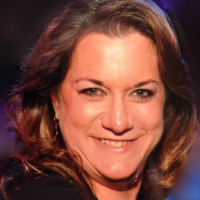I decided to start a series of blogs where I interview key people in the SQL Server community. Instead of me asking technical questions, I plan on asking about their outlook on the future, books they read (non-fiction and/or technical), and their overall thoughts on where technology (mainly SQL Server) is headed. You can find more interviews here.
Next up: Stacia Varga (b | t): 
Mohammad: Do you think people who dismiss the cloud as a “fad” or just don’t take it serious enough to learn about it (i.e. Azure, AWS, etc), will be in a tough spot to find a job 5 years from now?
Stacia: I think projecting out the evolution of SQL Server even a couple of years from now, let alone 5 years, is difficult to do, given the more rapid pace of release cycles of the product along with changes in computing architectures both on-prem and in the cloud. I’m not sure I would say that the technology would be “more” cloud-focused, either. Instead, I think it’s safe to say that the ability to move between on-prem and the cloud will be more seamless because the trade-offs will not be due to feature differences between the platforms. In my opinion, marketplace demand will ultimately determine whether the cloud version should ever surpass the on-prem version of SQL Server in terms of features and functions.
Mohammad: What are you most proud of doing/accomplishing for the SQL Server community so far in your career?
Stacia: Much of the work I do (classroom training, video training, conference events, books, and mentoring my clients) revolves around helping people learn how to work with technology effectively. In many cases, people learn enough not only to solve a problem their organization is facing (which is very rewarding for me to be a part of), but they also are able to advance their careers. I’m very pleased when I hear of the positive impact my work has had on someone at a personal level. Of this group, some wind up with the confidence and the knowledge to contribute to the SQL Server community as well, and that makes me proudest of all.
Mohammad: What non-technical/non-fiction book/s would you recommend? If you only read technical books…what do you recommend?
Stacia: Taking this question at face value, I really can’t recommend non-technical/non-fiction to an audience I don’t know. I’m a consultant, so my stock answer… it depends. I’d ask an individual what topics they like, and then I could make a recommendation based on my experience! I have a wide variety of interests (too many according to my husband), so I’m sure I’d come up with something. As for technical books, I tend to focus on topics and authors related to the business intelligence and analytics aspects of the Microsoft data platform. Anything written by Marco Russo, Alberto Ferrari, Chris Webb, Paul Turley, Dejan Sarka, and Jen Stirrup are the first to come to mind. I’ve also been reading books on data visualization theory, data science, R, Python, Hadoop, and big data in general.
Mohammad: For someone who’s career focus has been on one aspect of SQL Server (i.e. high availability), do you think it would be wise for them to become a “jack of all trades” by starting to learn, SSRS/IS/Azure, etc. or remain focused on their area of expertise? In another words, which would you say is more valuable? mile wide / inch deep or inch wide / mile deep?
Stacia: This is a difficult question to answer because everyone’s circumstances in terms of opportunity and interests are different. There is no right or wrong answer here. I think everyone should have some familiarity with the various technologies – maybe not inch-deep level, but enough to understand where a technology fits into the stack, what it’s good for and what it’s not good for, what impact its use is going to have (for better or worse) on the overall architecture and/or database engine, etc. Is that half-inch or three-quarters? I don’t know. The key to career, in my opinion, is doing what you love and being of service to your team and your organization. If that means expanding your skills to cover other areas, go for it. If it means being the absolute best at one thing, go for it. And recognize that the answer changes over time and place.